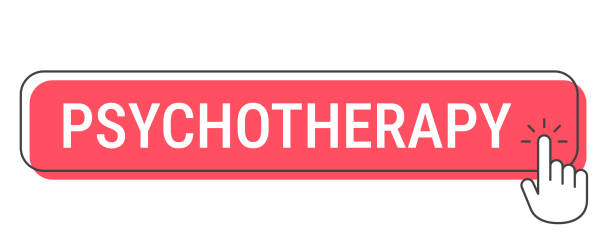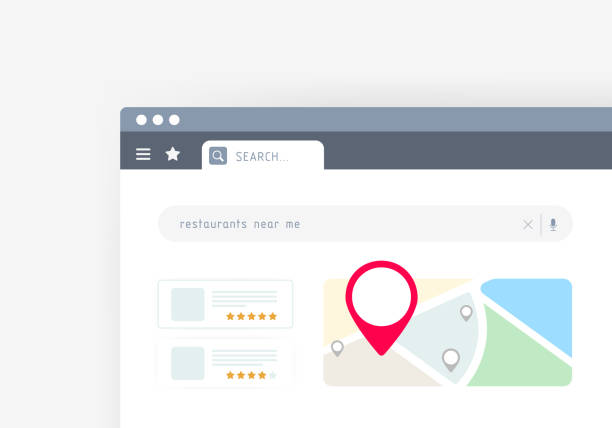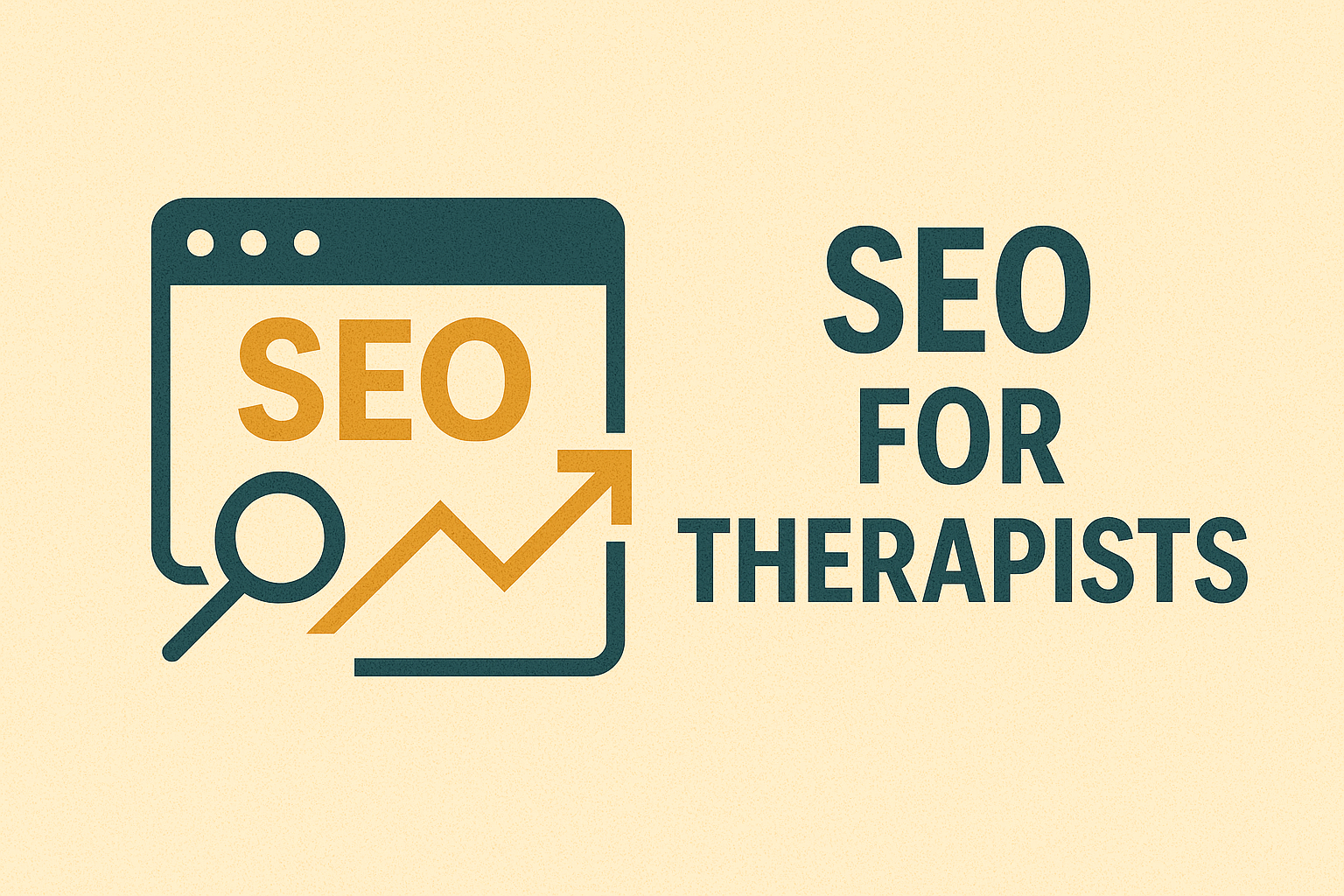SEO for therapist practices is no longer optional; it’s a core part of building a strong, trustworthy, and visible online presence. As clients increasingly turn to Google to find support for anxiety, trauma, depression, couples counseling, and other mental-health needs, therapists who do not invest in SEO risk being overshadowed by competitors with optimized websites.
Today’s therapy clients research symptoms, compare profiles, read blogs, and evaluate multiple providers before making an inquiry. This shift means that even highly skilled clinicians can miss out on potential clients if their website doesn’t appear in local searches or fails to communicate expertise effectively.
A well-executed SEO strategy supported by ongoing SEO training for therapists helps mental health professionals reach the right audience at the right time. It boosts local visibility, builds digital credibility, and ensures your practice shows up for high-intent searches like “trauma therapist near me” or “EMDR therapy in Austin.” When implemented consistently, SEO becomes one of the most reliable ways to generate steady, long-term inquiries without relying solely on referrals or advertising.
That’s where specialized partners help.
At Mental Health IT Solutions, we support therapists with targeted SEO marketing strategies designed specifically for mental-health practices. We strengthen search visibility, improve website performance, and build long-term authority, helping clinicians consistently attract their ideal clients without the complexity.
For therapists launching a new practice or looking to scale an established one, understanding how SEO works and how to apply it strategically creates a meaningful competitive advantage. It strengthens online reach, builds trust with potential clients, and positions your practice as an authoritative, reliable source of mental-health support.
Understanding the Importance of SEO for Therapist
Search Engine Optimization (SEO) is essential for therapist who want to be visible when clients are actively searching for support. Whether someone types “anxiety therapist near me,” “couples counseling,” or “trauma therapy online,” they expect to find providers who are credible and easy to access.

If your practice doesn’t appear in these results, you’re missing a steady stream of high-intent clients.
SEO is not just about ranking; it’s about building trust. A well-optimized therapist website looks professional, loads quickly, and answers the questions potential clients are asking. It reassures them, reduces friction, and encourages them to take the next step toward booking a session.
A fully optimized site also converts better. It guides visitors toward scheduling, contacting, or learning more, turning search traffic into actual client inquiries.
For a deeper breakdown of how SEO directly supports therapist visibility, see: SEO for Therapists: Attract the Right Clients
Why SEO Matters for Therapist
SEO has become essential for therapists because clients increasingly rely on Google—not referrals—to choose their mental-health provider. When someone searches for terms like “therapist near me,” “anxiety therapist in [City],” or “online therapy for depression,” they are actively seeking support. If your practice doesn’t appear in these searches, potential clients will book with competitors who do.
A strong SEO strategy positions your website where clients are already looking. It improves your visibility, strengthens your credibility, and ensures your services appear for high-intent keywords relevant to your specialty and location. This is especially important for therapists because mental-health services fall under Google’s “Your Money or Your Life” (YMYL) category, meaning Google prioritizes websites that demonstrate trust, expertise, and safety.
SEO also helps therapists:
- Build long-term visibility without depending on paid ads or directory listings
- Increase inquiries from local clients searching for therapy services
- Establish trust through accurate, informative, and clinically aligned content
- Showcase specialty areas, treatment approaches, and unique expertise
- Compete effectively in saturated markets with multiple providers offering similar services
- Strengthen their professional brand across search engines, directories, and Google Maps
For many therapists, the challenge isn’t clinical expertise it’s discoverability. Strong SEO ensures your website becomes a reliable, consistent source of new client inquiries and positions your practice as a credible and accessible choice within your community.
How SEO Supports Long-Term Therapy Practice Growth

SEO provides therapists with a sustainable path to long-term practice growth by building online visibility that compounds over time. Unlike paid ads or directory listings—which stop generating results the moment you stop paying—SEO strengthens your digital presence month after month, creating a steady flow of high-intent clients searching for therapy services in your area.
As your website gains authority, rankings for core keywords like “therapist near me,” “anxiety therapy in [City],” or “trauma therapist online” continue to improve. This increases the volume of organic traffic from people actively seeking help, resulting in consistent inquiries and reduced dependence on external referral sources.
Long-term SEO includes creating service-specific pages, publishing clinically accurate blogs, and optimizing your Google Business Profile—all of which work together to build trust and relevance. Over time, these efforts help your practice dominate local search results, making you the preferred choice for clients in your region.
SEO also supports multi-location expansion, teletherapy growth, niche specialization, and brand authority. As your content library grows and your site becomes more established, Google rewards your practice with stronger rankings and higher visibility, giving you a competitive advantage that lasts for years.
By investing in SEO, therapists build a durable digital foundation that reliably attracts clients, strengthens reputation, and supports ongoing practice growth.
Core Pillars of Therapist SEO

Therapist SEO is built on four essential pillars that work together to improve visibility and attract high-intent clients:
On-Page SEO – Optimizing content, keywords, metadata, and headings so Google clearly understands your services and specialties.
Technical SEO – Ensuring fast load speed, mobile responsiveness, clean structure, and secure HTTPS for a smooth, trustworthy user experience.
Local SEO – Strengthening visibility in your target area through Google Business Profile optimization, map rankings, localized keywords, and ethical reviews.
Off-Page SEO – Building authority through backlinks, directory listings, local citations, and other trust signals from reputable sources.
These pillars combine to create a strong, sustainable SEO foundation that helps therapists grow consistently over time.
On-Page SEO for Therapist
On-page SEO helps search engines understand the purpose, structure, and relevance of your therapy website. For therapists, strong on-page SEO ensures your services, specialties, and location are clearly communicated so Google can match your practice to the right client searches. It also improves readability and user experience, both of which influence rankings and conversions.
Effective on-page SEO for therapists includes the following elements:
1. Optimized Page Titles and Meta Descriptions
Each service page, location page, and blog must have a clear, keyword-focused title and description.
- Include your primary keyword (e.g., “Anxiety Therapist in Denver”)
- Add your city or state to strengthen local relevance
- Write compelling descriptions that encourage clicks
2. Proper Heading Structure (H1, H2, H3)
Headings guide both users and search engines.
- Use one H1 per page that clearly states the topic (e.g., “Anxiety Therapy in Austin”)
- Use H2/H3 subheadings for treatment details, benefits, FAQs, and modalities
- Ensure headings follow a logical, easy-to-read flow
3. Keyword Placement and Semantic Keywords
Use keywords naturally throughout your content.
- Include primary and secondary keywords in the first 100 words
- Add related terms such as “therapy techniques,” “mental-health treatment,” or modality names
- Avoid keyword stuffing by focusing on clarity and client relevance
4. High-Quality, Service-Focused Content
Your website should explain what you do clearly and professionally.
Include:
- What each service involves (CBT, EMDR, trauma therapy, couples counseling)
- Who it helps (teens, adults, couples, professionals)
- Benefits and expected outcomes
- What clients can expect in their first session
Google rewards content that is clear, helpful, and grounded in clinical expertise.
5. Local SEO Elements on the Page
To strengthen location relevance:
- Mention your city, neighborhood, or service area naturally within your content
- Add embedded Google Maps on contact/location pages
- Include NAP (Name, Address, Phone) in the footer
6. Internal Linking
Internal links help Google understand which pages are important.
- Link from service pages to related blogs
- Link from blogs to your core services
- Create topical clusters (e.g., Anxiety → Causes → Symptoms → Treatment)
This improves ranking and keeps visitors engaged longer.
7. Image Optimization
Images should load quickly and support accessibility standards.
- Compress images for fast load times
- Use descriptive alt text such as “therapist office in Seattle”
- Include relevant photos of your practice environment (non-client images only)
8. Clear Calls-to-Action (CTAs)
Guide visitors toward taking the next step.
Examples:
- “Schedule a Consultation”
- “Book a Session”
- “Contact Me Today”
Strong CTAs improve conversions and signal page purpose.
Technical SEO for Therapist Websites
Technical SEO ensures that your therapy website is fast, secure, and easy for search engines to crawl and index. While clients focus on your services and expertise, Google evaluates the behind-the-scenes structure that determines whether your website appears in search results. Strong technical SEO improves user experience, boosts rankings, and supports long-term visibility for your practice.
1. Fast Page Load Speed
Therapy websites must load quickly on both desktop and mobile to prevent visitors from leaving.
Key actions include:
- Compressing images
- Reducing heavy scripts
- Using a lightweight, optimized theme
- Enabling browser caching and minification
Google rewards fast-loading sites because they provide a better user experience.
2. Mobile-Friendly Design
Most clients searching for therapists use mobile devices.
Your website should:
- Adjust cleanly to all screen sizes
- Keep navigation simple and clear
- Ensure buttons (Book Now, Contact) are easy to tap
Google prioritizes mobile-responsive websites in rankings.
3. Secure HTTPS Connection
Security is critical for mental-health providers.
An SSL certificate is non-negotiable because it:
- Protects user data
- Builds trust with clients
- Meets foundation requirements for HIPAA-aware design (non-PHI pages)
- Signals credibility to search engines
4. Clean Website Architecture
A well-structured site helps Google index your pages properly.
This includes:
- Clear navigation menus
- Organized service categories
- Minimizing unnecessary pages
- Avoiding duplicate content
- Using breadcrumb navigation
Therapist websites with strong structure tend to rank higher across multiple service pages.
5. Optimized XML Sitemap
An XML sitemap tells Google which pages to crawl.
Ensure:
- Your sitemap is auto-generated
- It includes all key pages (services, locations, blogs)
- It is submitted to Google Search Console
This helps Google discover new or updated content quickly.
6. Proper Use of Robots.txt
Robots.txt helps control which pages search engines can access.
For therapist websites, it should:
- Allow crawling of important service pages
- Block unnecessary internal URLs (e.g., admin pages, private forms)
- Prevent duplicate or thin content from being indexed
A properly configured robots file improves crawl efficiency.
7. Structured Data (Schema Markup)
Schema helps Google understand your practice details more clearly.
For therapists, recommended schema includes:
- Local Business schema
- Organization schema
- FAQ schema
- Article schema for blogs
Structured data increases your chances of appearing in enhanced search features.
8. Regular Website Health Monitoring
Use tools like Google Search Console to track:
- Crawl errors
- Indexing issues
- Mobile usability
- Core Web Vitals performance
Consistent monitoring helps maintain long-term ranking stability.
Local SEO for Therapist

A high-performing therapy website relies heavily on strong local search engine optimization (SEO). As clients increasingly use Google to find nearby mental-health providers, effective local SEO therapists ensure your practice appears in the right searches, signals credibility, and attracts clients who are already seeking therapeutic support. Local SEO for therapists focuses on visibility within your geographic area, combining service relevance, location targeting, user experience, and consistent content development.
If you want to understand foundational SEO strategies, MHIS’s guide on SEO for therapists provides a strong overview of the core elements needed to optimize a therapy practice.
Therapists benefit significantly from local SEO because many clients prefer seeking care close to home or within their state for teletherapy. Ranking in Google Maps, the local 3-Pack, and “therapist near me” searches directly influences how many inquiries your practice receives, especially in competitive regions.
Foundations of Local SEO for Therapists
Your local SEO strategy must start with elements that help Google understand your services, service area, and practice identity. Core components include:
- Clear, descriptive service pages such as anxiety therapy, trauma therapy, or couples counseling
- Location-based keywords like “therapist in [City]” or “online therapist in [State]”
- Proper use of H1, H2, and H3 headings for clean structure
- Optimized URLs, meta tags, and internal links
- Mobile-responsive design and fast page load speeds
These fundamentals ensure search engines can interpret your content accurately and match your practice to local user intent.
Local SEO Elements that Drive Results
Local SEO determines whether your practice appears when clients look for therapy services near them. High-impact elements include:
- Google Business Profile optimization with accurate categories, services, hours, and service areas
- Consistent NAP (Name, Address, Phone) across all online listings
- Location-specific landing pages such as “Anxiety Therapist in Seattle” or “Trauma Therapist in Miami”
- Updated practice images and detailed business descriptions
- Ethical and compliant review generation to build trust
- Local business schema to help Google understand your practice details
These elements improve your visibility in local results and increase your chances of appearing in Google Maps searches.
Content Strategy for Local SEO
High-quality content is one of the strongest ranking drivers for therapists. Localized articles and educational posts help you rank for long-tail searches, build authority, and connect with the needs of your community.
Strong content may include:
- Articles answering local client questions
- Symptom-focused guides such as panic attacks, burnout, or intrusive thoughts
- Modality explainers such as CBT, EMDR, or ACT
- Pages addressing specific audience groups like teens, couples, or professionals
- Localized FAQs and schema to boost visibility in search results
Content optimized with location keywords helps your practice appear for hundreds of relevant searches beyond your main service pages.
Why Local SEO Matters for Therapy Practices
Local SEO directly influences whether your practice appears in front of people actively looking for therapy services nearby. With strong local optimization, therapists can:
- Increase visibility in their target city or region
- Build trust with local audiences through helpful, authoritative content
- Attract intent-driven clients searching for immediate support
- Strengthen long-term credibility and brand presence
- Build a consistent pipeline of inquiries without relying solely on online directories
When therapists combine strong local SEO, optimized content, service-specific landing pages, and a well-structured website, they create a sustainable digital foundation that consistently drives new inquiries and positions their practice as a trusted provider in their area.
Off-Page SEO for Therapist
Off-page SEO focuses on building your therapy practice’s online authority and credibility beyond your website. While on-page SEO helps Google understand your services, off-page SEO signals whether your practice is trusted, reputable, and relevant within your industry and location. Strong off-page SEO improves rankings, increases referral traffic, and enhances your visibility across multiple channels.
1. High-Quality Backlinks from Relevant Websites
Backlinks act as endorsements. When reputable websites link to your content, Google sees your practice as more credible.
Effective backlink sources for therapists include:
- Mental-health directories
- Psychology and therapy associations
- Guest articles on reputable health blogs
- Features in local news or community websites
- Partnerships with healthcare providers
Quality matters more than quantity. A few authoritative links outperform dozens of low-value ones.
2. Google Business Profile Optimization
Your Google Business Profile (GBP) is one of the most powerful off-page SEO tools for therapists.
To optimize:
- Add accurate categories, services, and hours
- Post updates regularly (blogs, service highlights, announcements)
- Upload high-quality photos of your office (no client images)
- Use service areas for multi-city reach
A well-maintained GBP helps you rank higher in Google Maps and local search.
3. Consistent Directory Listings (NAP Consistency)
Your Name, Address, and Phone Number must match across all listings.
Key platforms include:
- Psychology Today
- TherapyDen
- GoodTherapy
- Yelp
- Healthgrades
- State-specific mental-health directories
Consistency builds trust with both Google and potential clients.
4. Ethical Review Generation
Client reviews are a major ranking factor in local SEO.
Because therapists must follow strict ethics:
- You cannot solicit testimonials directly
- But you can encourage feedback through neutral, compliant language
- You can also improve visibility by responding professionally to reviews where appropriate
A steady flow of authentic reviews strengthens your online authority.
5. Social Media Presence
Social media signals indirectly contribute to SEO.
For therapists, platforms like LinkedIn, Facebook, and Instagram can:
- Increase brand awareness
- Drive referral traffic to your website
- Build trust through educational content
- Strengthen your authority in your niche
Regular activity signals that your practice is active and reputable.
6. Content Syndication and Guest Posting
Publishing expert insights on external platforms expands your reach.
Examples include:
- Guest blogs on mental-health websites
- Articles on Medium
- Contributions to wellness publications
- Podcast interviews
- Collaboration with community organizations
These efforts generate backlinks and position you as an authority in your specialty.
7. Local Partnerships & Community Engagement
Participating in local initiatives strengthens credibility and enhances local SEO.
This can include:
- Collaborations with schools, universities, or hospitals
- Workshops, webinars, or community mental-health events
- Partner features on local business websites
- Local press or counseling resource lists
Local relevance is a major ranking factor for therapeutic services.
8. Brand Mentions (Unlinked Mentions)
Even when your practice is mentioned without a link, Google counts it as a trust signal.
You can build brand mentions through:
- Being quoted in articles
- Providing expert commentary
- Participating in mental-health forums or Q&A platforms
- Contributing to research-based content
These signals strengthen your practice’s digital footprint.
Voice Search Optimization for Therapists

Voice search is changing how clients find therapy services. With more people using smart speakers, mobile voice assistants, and conversational queries, optimizing your practice website for voice search can significantly boost visibility and reach.
Key Strategies for Voice Search Optimization
- Use conversational, long-tail keywords such as “find a trauma therapist near me” or “best anxiety counselor in Dallas for online sessions”
- Structure your content with questions and answers (e.g., “What is CBT therapy?”) since voice searches often begin with “who,” “what,” “where,” “how”
- Ensure your website loads quickly and is mobile-friendly—voice search users expect immediate results
- Optimize your Google Business Profile and local listings to include service areas, specialties, and friendly practice descriptions, because voice searches frequently include location-based intent
- Include FAQ sections with structured data (FAQ schema) so your answers can show up directly in voice-driven search results
For a more detailed comparison of voice search versus traditional SEO and how it applies to therapy practices, see this article: Voice Search vs Traditional SEO: What Works for Therapists.
Optimizing for voice search helps your practice reach clients who are actively looking for help using natural language. By incorporating these strategies, you stay ahead of competitors and ensure your site remains relevant in today’s evolving search landscape.
Conversion Optimization for Therapist

Conversion optimization focuses on turning website visitors into booked clients. Even if your practice ranks well on Google, a poorly structured website can cause potential clients to leave without taking action. For therapists, optimizing for conversions is essential because most clients choose a provider within minutes of landing on a website—often based on clarity, trust, and ease of booking.
The first step is simplifying navigation. Your website should make it effortless for visitors to understand what you offer, who you help, and how to schedule an appointment. Clear service pages, visible call-to-action buttons, and an intuitive menu create a smoother user experience.
Next, ensure your Book Now, Schedule a Consultation, or Contact buttons are consistent and prominent across key pages. Clients should never struggle to find the next step. Embedding online booking tools, contact forms, or intake links significantly increases conversion rates.
Visual trust signals also matter. Professional photos of your office space (without clients), credentials, certifications, and a warm, reassuring tone help people feel safe taking the next step. Adding FAQs, treatment expectations, and a brief “What happens in the first session?” section reduces hesitation and builds confidence.
For mobile users—often more than 60% of visitors—your site must load quickly, display cleanly, and offer frictionless booking options.
By combining clear communication, strong CTAs, trust-building content, and mobile-friendly design, therapists can dramatically increase the number of visitors who convert into active clients.
To strengthen your digital presence, visit: Building a Strong Online Presence for Your Therapy Practice
How Therapists Can Use AI Tools to Strengthen SEO and Online Visibility

AI has become a powerful asset for therapists looking to improve SEO, streamline content creation, and build a stronger online presence. When used strategically, AI tools help therapists optimize their websites faster, create high-quality educational content, and stay ahead of local competitors without spending excessive time on manual tasks.
AI can assist therapists in identifying the right keywords based on search intent, service specialty, and location. Tools like ChatGPT, Surfer SEO, and SEMrush analyze search trends and suggest phrases such as “anxiety therapist in [City]” or “CBT for panic attacks,” helping practices target terms clients are actively searching for. This leads to more accurate service pages, stronger blog topics, and better ranking performance.
AI also helps therapists produce consistent, clinically aligned content that meets Google’s E-E-A-T (Experience, Expertise, Authoritativeness, Trustworthiness) standards. From FAQ sections and blog drafts to symptom explainers and treatment guides, AI speeds up content development while allowing therapists to edit for accuracy and tone.
For local SEO, AI tools can optimize Google Business Profile updates, suggest location-based content ideas, and automate reputation insights—making it easier to maintain strong visibility in “near me” searches.
When used appropriately, AI enhances efficiency, strengthens SEO strategy, and helps therapists maintain a compelling, authoritative presence online.
Best SEO Companies for Therapists
| Company | Primary Focus | Strengths | Best For | Limitations |
|---|---|---|---|---|
| 1. Mental Health IT Solutions (MHIS) | Therapist-focused SEO, local SEO, content, website optimization | Deep expertise in mental-health search behavior; specialty-specific SEO (CBT, EMDR, trauma, couples); strong local ranking strategies; HIPAA-aware workflows; high-quality content | Solo therapists, group practices, multi-location clinics looking for high-impact SEO | Not a budget “template” solution; designed for practices seeking measurable growth |
| 2. TherapySites | Website + SEO bundle packages | Simple setup; directory listings; beginner-friendly; all-in-one platform | Therapists wanting a basic site + foundational SEO | Limited customization; weaker local SEO performance |
| 3. Brighter Vision | Affordable websites + starter SEO | Budget-friendly; educational SEO resources; structured blog support | New therapists or part-time practitioners | SEO is entry-level; limited advanced ranking strategies |
| 4. iTherapy | Website + EHR + practice tools + SEO | Integrated ecosystem; quick setup; keyword-focused SEO | Therapists wanting everything under one platform (EHR + website + SEO) | SEO flexibility is limited; not ideal for multi-location SEO scaling |
| 5. Beacon Media + Marketing | Healthcare & behavioral-health SEO | Strong content capabilities; analytics-driven campaigns; good for growth-focused practices | Larger clinics, intensive marketing campaigns, multi-state practices | Higher pricing; not exclusively focused on mental-health |
How Mental Health IT Solutions Help Therapist Improve SEO
Mental Health IT Solutions (MHIS) specializes in SEO strategies designed exclusively for therapists, ensuring each practice improves visibility, attracts more clients, and builds long-term authority online. Unlike general marketing agencies, MHIS understands the nuances of mental-health search behavior, ethical requirements, and the importance of clinically accurate content—making their approach highly effective for both solo practitioners and multi-location clinics.
MHIS strengthens therapist SEO through targeted local optimization, including Google Business Profile management, location-specific service pages, and strategies that help practices appear in “near me” and city-based searches. They also develop clear, conversion-focused service pages for specialties such as anxiety therapy, trauma therapy, EMDR, and couples counseling, helping Google better understand each clinician’s expertise.
Content plays a central role in MHIS’s approach. The team creates in-depth, keyword-rich blogs, educational resources, and topical clusters that position therapists as trusted authorities in their niche. This level of content quality supports Google’s YMYL (Your Money or Your Life) standards and improves ranking stability.
Additionally, MHIS enhances website speed, mobile responsiveness, structure, and usability ensuring strong technical performance. Combined with high-quality backlinks and ethical visibility-building strategies, MHIS delivers SEO results that help therapists consistently attract high-intent clients and grow their practice sustainably.
FAQs
Why is SEO important for therapists?
SEO helps therapists appear in Google searches when clients are actively looking for support. Strong SEO improves visibility, builds trust, and ensures your practice stands out in competitive local markets.
How long does it take for therapists to see SEO results?
Most therapists begin noticing improvements in visibility, website traffic, and inquiries within 2–3 months. Significant ranking growth typically happens over 4–6 months as content, authority, and local signals strengthen.
What keywords should therapists target for better SEO?
Therapists should focus on service keywords (anxiety therapy, trauma therapy, couples counseling), local keywords (“therapist in [City]”), and condition-based terms (panic attacks, intrusive thoughts). These align with what clients most commonly search for.
Do therapists need separate pages for each service?
Yes. Creating individual service pages helps Google understand your specialties clearly. Dedicated pages for anxiety therapy, depression therapy, trauma therapy, or EMDR improve rankings and attract more targeted clients.
Is local SEO necessary for teletherapy practices?
Absolutely. Even teletherapy clients search by location. Local SEO helps your website appear for city-based and statewide searches, ensuring you reach clients in your licensed regions.
Conclusion
SEO is now essential for therapist who want consistent inquiries and long-term visibility. A professionally optimized website builds trust, enhances credibility, and ensures clients can easily find the support they’re looking for.
By focusing on on-page optimization, technical improvements, local SEO, and off-page authority, therapist can transform their website into a reliable client acquisition channel. With the right strategy and the right partner, SEO becomes a powerful engine for sustainable practice growth.
If you’re ready to strengthen your online presence and attract ideal clients, MHIS offers specialized SEO and website development for therapist solutions built specifically for mental-health professionals.







